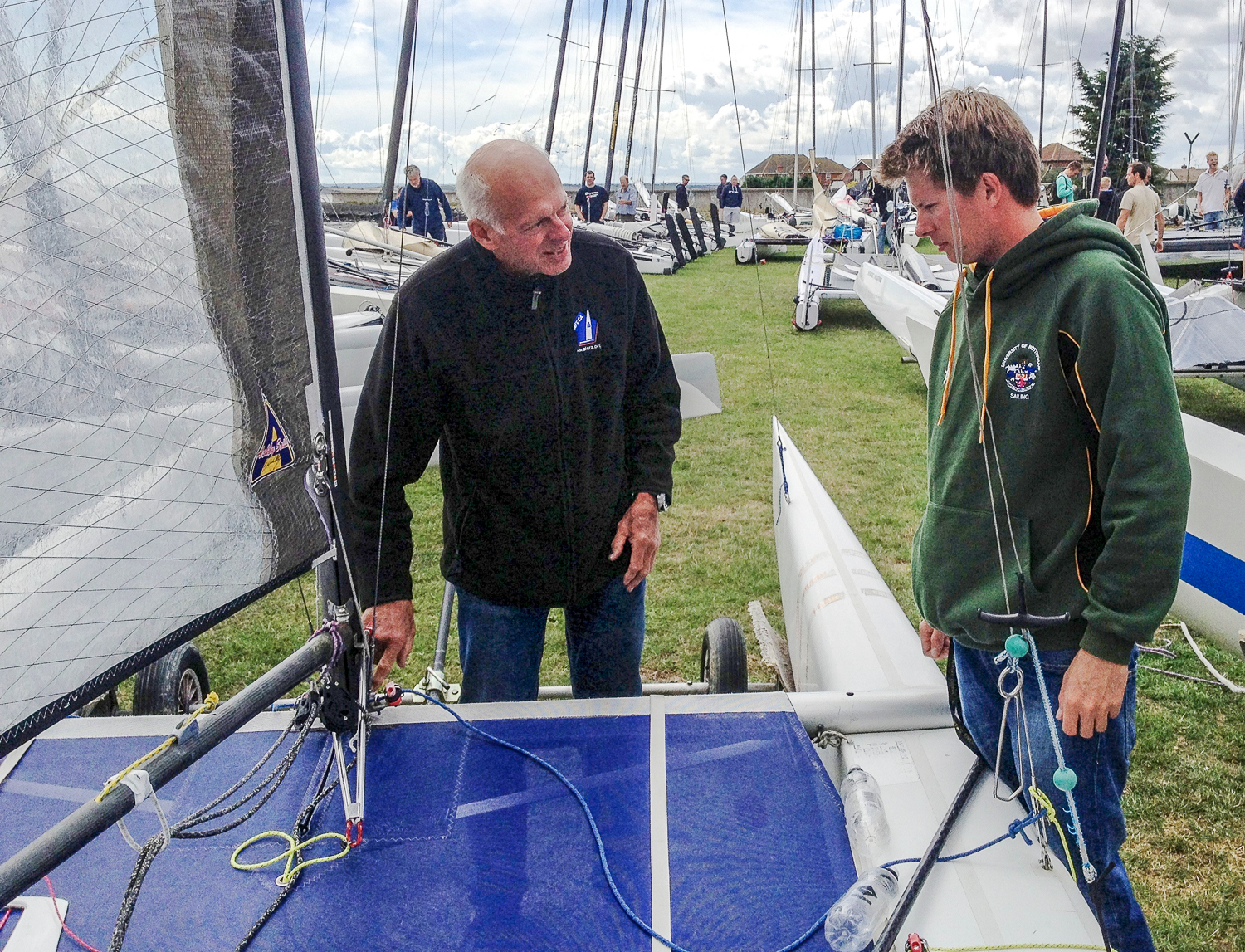Piet Saarberg, a solid pillar for IACA retires & Bailey White co-opted as new secretary.
Dear members
On 19 October 2016, Piet Saarberg, IACA secretary, sent me this email (slightly edited):
'…I think it is wise for me to withdraw as secretary. Almost everything is dealt with direct through the internet which makes the post with not much left to do. I propose to do this at the 1st of January 2017.
I did both jobs (secretary and treasurer) long enough and started the Treasuring when there were no funds left at IACA. The present status is a lot better. So it is now up to Phillipe to guard the Treasure.'
I asked Piet to write a summary about what he did for the class during all these years. Read his answer below, a lot of us are probably too young to know these things, this is an entertaining and enlightening story.
In the name of the IACA committee and the world-wide members of our class, I thank Piet for his engagement during all these years (that’s close to 40 years, folks !).
As for R 6.4 of our constitution, the IACA committee has co-opted Bailey White (USACA president and full-time member of the IACA committee) to act as IACA Secretary until the next WGM, when a new Secretary shall be elected. Thanks to Bailey to have accepted this challenge.
I now leave the word to Piet.
Charles
Here a short my history with the class.

I have been sailing A-class since 1978. In the early 80’s we started to form the A-class organization DACA in NED with 3 members, official body and registered in NED. My first big international race was in Italy at the Vela di Pasqua in Cesenatico, 1981.
My first official involvement, as representative for the class, was going to the IYRU in London to tell them that the A-class was still existing. We had no contact with this organization as they did not recognize the IACA organization until then. But the only thing they were interested in how big it was to see what fee they would get of the approx. 500 A-class members registered at that time. Hearing that number they were not interested as the numbers were too low, so the amount was too low for their need of more funds. This changed later.
My first real official involvement with IACA was when we organized the WC in The Netherlands in Andiijk.
In those days the IACA president was somebody from the WC organizing country, so I was elected IACA president in 1995. Spain wanted to do a WC in Spain in 1996, but they did not have an A-class organization yet. So I flew to Barcelona to meet a representative of the Spanish National sailing authority to see what could be done to solve this problem. With the OK from the class I remained President in ’96 and we had a very well organized WC in Estartit, SPA. Glenn Ashby won the championship, his first WC and new in the class, against Olympic sailors like Edigio Babi and Mitch Booth. And the Spanish A-class organization was established.
I think a lot of presidents did something for the class. So during my presidency we had the big class rule change which was the addition of a minimum weight. This was a very hard nut to crack as there were already 60kg A-class cats around, with an aluminium mast! They were very delicate and were the cause of the class reputation of being a weak boat which could fall apart in a year. On the other side was the builder of the Italian A-class who wanted the minimum weight set at 85kg. With a lot of hard discussions, the limit was set at 75kg and the ballot was held. Luckily we pulled this one through but lost a lot of IACA members who did not accept it.
Another thing was to amend the WGM. Until then all sailors had a direct say in the WGM. I remember a meeting WGM in France where the sailors almost made it impossible as they intercepted the meeting constantly and shouted to each other, making it a big mess. This WGM lasted for 2 days, only interrupted by sailing as we had a WC to do. I put the rule in place that the counties are to be represented by selected person at the WGM, and to give the representative the opportunity to ask their members present at the meeting for advise, so the meeting would pause temporarily, and to continue a short time later. This only happened a few times in the years after, but I cannot even remember when this stopped.
Also that was the moment of making a central bank account. I found a solution in the NED. It was very hard to have one as IACA was not registered legal body and had no legal body in any country. Until then the IACA funds were transferred, every time the presidency moved to a new country, to that country. This had a lot of problems as the countries had their own currency and there was no push for a country to leave a lot currency for the next country. So that was zero at the moment I took over. After ’96 I became IACA secretary and treasurer, until this year. I found it time to stop my activity in IACA at 72 and have a fresh mind taking over.
I am glad the class is well alive and kicking. We have still a lot of development, and after a number of tries to stop it, we are now past that and have to find ways to keep the class as 1st. I will keep on sailing as long I can get aboard when capsized. In the planning is to complete in POL next year.
This is in short my involvement with the A-class.
Best regards,
Piet Saarberg
Zandvoort, NL

